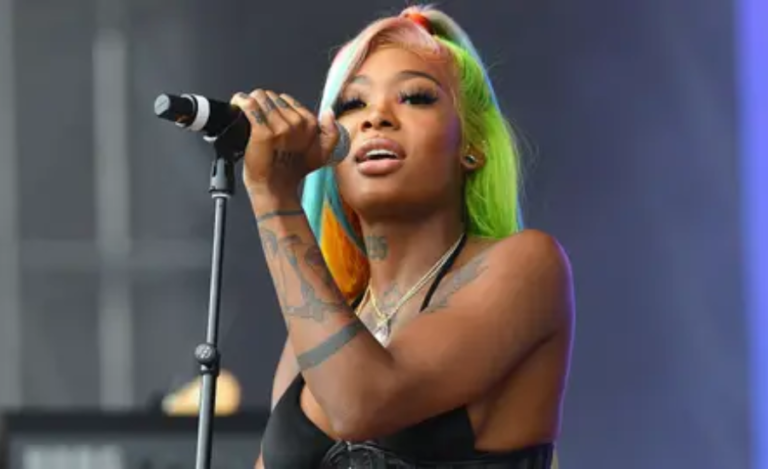Ice Cube Net Worth: The Journey from Rapper to Business Mogul
When it comes to the evolution of entertainment icons, Ice Cube is a prime example of someone who has successfully transitioned from being a pioneering rapper to a full-fledged business mogul and philanthropist. As of 2024, Ice Cubes net worth is estimated to be around $160 million, a reflection of his immense success across multiple industries, from music and film to television and entrepreneurship. However, his wealth is not just a number—it’s a symbol of his hard work, dedication, and the values he holds dear.
In this article, we’ll take a deep dive into Ice Cube’s life, career, and the impressive journey that has brought him to his current net worth. We’ll also explore how his commitment to his community and activism adds layers to his persona, making him more than just a celebrity—he’s an icon with a mission.
Early Life and Career Beginnings
Born O’Shea Jackson on June 15, 1969, in Los Angeles, California, Ice Cube grew up in the tough neighborhoods of South Central LA. His experiences in these environments would later inspire much of his music, particularly his work with N.W.A., one of the most influential hip-hop groups of all time. Cube started rapping at an early age, and by 1986, he was a member of the group C.I.A. before joining N.W.A. in 1987.
N.W.A. revolutionized hip-hop with their raw, unfiltered lyrics and their unapologetic approach to addressing social issues, particularly the struggles of Black Americans. The group’s debut album, Straight Outta Compton (1988), became a landmark in music history and earned them both critical acclaim and controversy. Ice Cube’s fierce lyricism and thought-provoking commentary on systemic oppression made him one of the group’s standout members.
Breakthrough Solo Career
Ice Cube left N.W.A. in 1989, seeking greater creative control over his career. His decision to go solo turned out to be one of the best moves he ever made. His first solo album, AmeriKKKa’s Most Wanted (1990), was a massive success both commercially and critically, earning him respect as one of the best rappers of his generation.
What set Ice Cube apart from many of his contemporaries was his ability to blend political messages with street knowledge. He wasn’t just rapping about life in the ghetto; he was commenting on larger issues like police brutality, racial inequality, and the socio-economic struggles of Black communities. This became a hallmark of his work, both in music and later in his acting career.
Transition to Acting and Film Production
In the early 1990s, Ice Cube began expanding his horizons beyond music and entered the world of acting. His first major acting role was in the 1991 film Boyz n the Hood, where he portrayed Doughboy, a character living in a tough Los Angeles neighborhood. His performance was widely praised, and it marked the beginning of a successful career in Hollywood.
Over the next decade, Cube would become a leading figure in the entertainment industry, not just as an actor but also as a producer and writer. Some of his most notable films include Friday (1995), which he co-wrote and starred in, as well as its sequels, Next Friday (2000) and Friday After Next (2002). These films became cult classics, thanks to Ice Cube’s unique comedic style and his ability to connect with audiences from all walks of life.
In addition to the Friday franchise, Ice Cube starred in numerous films, including Barbershop (2002), Are We There Yet? (2005), and 21 Jump Street (2012). His filmography is diverse, ranging from comedy to drama, which helped solidify his reputation as one of Hollywood’s most versatile stars.
However, Ice Cube didn’t stop there. He took his talents behind the camera and co-founded the production company Cube Vision, which produced several of his most successful films. This move showed his savvy business sense and solidified his position as more than just a performer but also a key player in the entertainment industry.
Entrepreneurial Ventures
Ice Cube’s entrepreneurial journey is just as impressive as his entertainment career. As his acting career flourished, so did his business endeavors. One of the most notable aspects of Ice Cube’s wealth is his ventures outside of music and film.
In 1999, Cube co-founded the Big3 basketball league, a professional 3-on-3 basketball league that features former NBA players. The league was an instant success, attracting large crowds and receiving media attention. Ice Cube’s vision for the league was to create a platform for former NBA stars to continue their careers and to offer fans an alternative to traditional basketball leagues. His involvement in Big3 has been a major factor in growing his net worth.
In addition to his work with Big3, Ice Cube has also ventured into other business endeavors, including a partnership with Nike, where he created his own line of shoes and clothing. He has also signed endorsement deals with major companies like Coors Light and even launched his own product line, Cube Vision, which features everything from movies to merchandise. These ventures, combined with his substantial earnings from acting and music, have significantly contributed to his growing fortune.
Philanthropy and Community Impact
Beyond his success in entertainment and business, Ice Cube has always been committed to giving back to his community. He has been an outspoken advocate for social justice, particularly around issues like police brutality, racial inequality, and the struggles faced by African Americans.
His activism is deeply rooted in his upbringing and the experiences he faced in South Central LA. Cube has used his platform to speak out against systemic racism, offering support for movements like Black Lives Matter and other civil rights causes. He has also worked closely with organizations dedicated to improving the lives of young people in marginalized communities, including programs that promote education, mentorship, and leadership.
In 2020, Cube worked with the Trump administration on a plan for Black Americans called the Platinum Plan, which aimed to address issues like economic inequality, criminal justice reform, and healthcare. While his collaboration with the administration was controversial, it highlighted Cube’s desire to see tangible change for Black Americans, regardless of political affiliations.
Ice Cube’s Legacy
As of 2024, Ice Cube net worth of $160 million is a reflection of his enduring influence and success. However, his wealth is not merely the result of his endeavors in entertainment and business. It is a testament to his perseverance, his commitment to his craft, and his ability to diversify his portfolio.
Ice Cube’s journey from a hard-hitting rapper with N.W.A. to a multi-faceted entrepreneur, actor, and activist is a story of transformation, growth, and resilience. His ability to adapt to changing times and markets while staying true to his core principles is what makes his legacy so enduring. More than just a pop culture figure, Ice Cube has become a symbol of how talent, hard work, and a commitment to one’s values can lead to lasting success in multiple fields.
Conclusion
Ice Cube net worth of $160 million as of 2024 speaks volumes about his success in various industries. From his pioneering role in hip-hop to his diverse and successful ventures in film, television, and business, Ice Cube’s career is a model of how to turn artistic talent into entrepreneurial success. Along the way, he has never forgotten his roots, using his platform to advocate for social justice and to uplift his community.
Whether through his groundbreaking music, his iconic movies, or his business ventures, Ice Cube continues to leave a lasting impact on the world. His story is a testament to the power of versatility, hard work, and staying true to one’s principles. With his legacy firmly intact and his wealth growing, Ice Cube proves that true success is about more than just money—it’s about making a difference and leaving an indelible mark on history.






